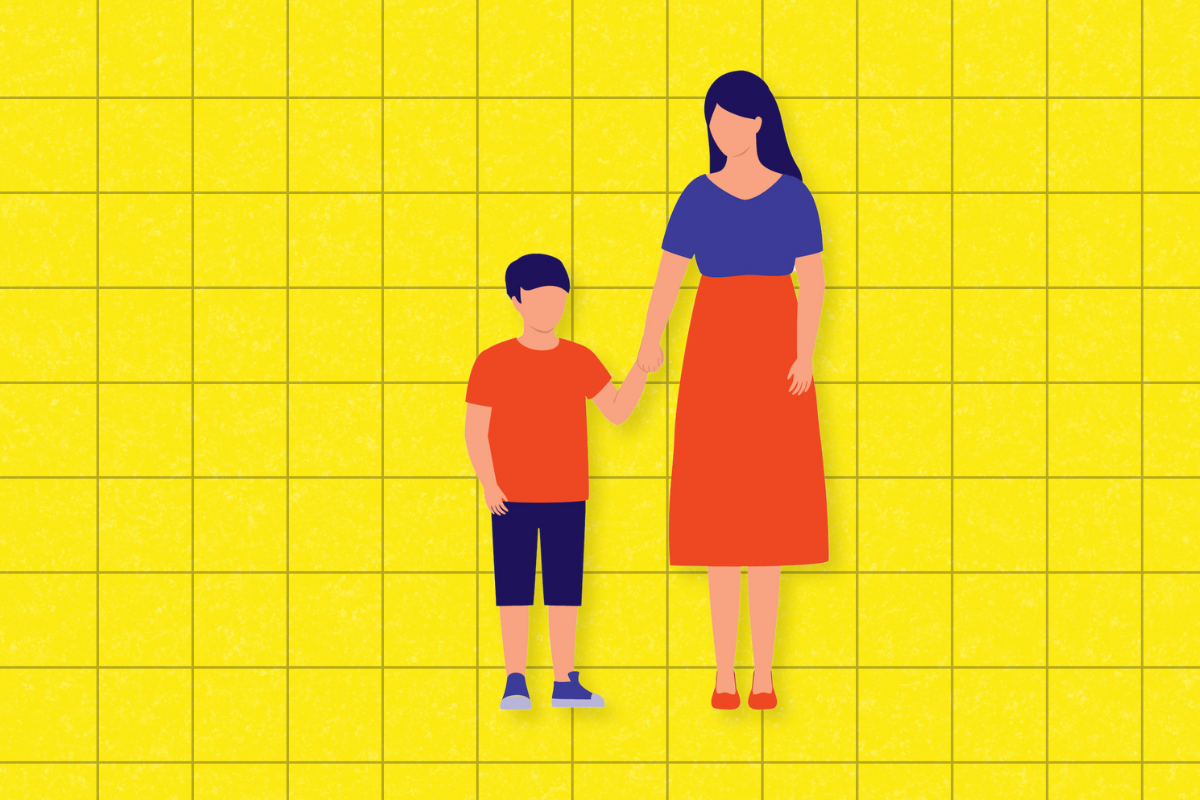After swastikas appeared in a bathroom and hallway of the middle school my son will attend next year, I talked to him about it — what swastikas look like (he shocked me by asking, “Isn’t that a Hindu symbol?”), what they mean and what to do if he ever sees one or hears about someone wanting to draw one. In a way, teaching a 9-year-old about a symbol that’s offensive is relatively straightforward, in that it’s clear-cut and easy to spot. But I realized tagging up buildings with swastikas is what happens when ignorant beliefs — such as Jews being a monolith of wealth and privilege — go unchecked.
And so gradually, I’ve been deepening our conversations about antisemitic tropes, including those that might come off as “positive” to a small child, like people perceiving all Jews to be rich and powerful. It started like this: “Before you were born, Grandpa Bob lost his job a lot. And Nana didn’t get paid a ton at her job. This meant that my family didn’t have as much money as many of the other families we knew. But did you know some people think that every single Jewish person has a lot of money? Isn’t that weird?”
I added that any time someone thinks something about an entire group of people that has nothing to do with their background or beliefs, then that’s a stereotype. And stereotypes aren’t true because it’s impossible for millions and millions of people who merely share an ethnicity, religion or skin color to be exactly the same in some other big, unrelated way.
Why does a 9-year-old need to know that? Because 9-year-olds spend a lot of time around other 9-year-olds. And I want to equip my kid to call out stereotypes — about Jews and other groups of people — that he’ll inevitably start hearing. My hope is that if we have these uncomfortable conversations now, our kids can correct other kids before they get their hands on a can of spraypaint. While the swastikas might be more shocking, the model minority myth can be just as damaging.
Here’s where I admit my own ignorance: I didn’t know about the Jewish success stereotype until I was in my 20s, when my Jewish friend thought a character I had created for a story was so interesting because she was from a struggling Jewish family. When my expression grew quizzical, she explained, “Because everyone thinks Jews are rich.” Suddenly, I felt like something was wrong with my family. I was paying loans in my parents’ names for my college education. It had felt fair because it was my education. But I had friends at college whose parents paid their entire tuition upfront. What was wrong with us that my parents couldn’t?
Nothing, of course. My parents worked hard, as their parents had. But it takes hard work and luck (sometimes in the form of generational wealth) to be successful. And my family didn’t have the luck part nailed down.
As an adult, I was able to shrug off that we hadn’t lived up to that stereotype. I’m not sure I would’ve been able to as easily had I encountered this myth as a kid, with my dad often out of work and standards for my own future success being sky high. That could’ve sent my self-worth plummeting, led to resenting my dad, and put me under pressure I couldn’t handle. I’m hoping by teaching my kids before they hear this stereotype in the wild, they’ll know this belief is silly and feel brave enough to point out to anyone who says it that it’s just not true.
It seems to be clicking. My son’s instant reaction to learning about this stereotype was “that’s annoying,” followed by an exasperated, “But we’re not even rich!” Then, in traditional Jewish fashion, he asked why: “Why do people assume all Jews have a lot of money?” I told him I honestly didn’t know. He stared at me expectantly. I said I had a few guesses, but they too were based on harmful stereotypes. So we left it at ignorance.
“If you don’t know lots of different kinds of people well, you might be more likely to believe whatever you hear about them. And that’s why it’s important to live in places where you can be friends with people from different backgrounds,” I told him. He restated his desire to live in Manhattan one day. I told him he might need a lot of roommates because, again, we’re not rich.
While I’m saving discussing disgusting concepts like “blood libel” and “vermin” for when he’s a little older, my son has known for a while now about how unmitigated hate led to the Holocaust and pogroms. And now he knows that hate doesn’t start with swastikas in a middle school bathroom. It can start with believing things that are untrue about a group of people.
Sure, on the surface, being thought of as wealthy doesn’t seem so bad. But when your group’s perceived success gets tied to other groups’ challenges, as it has throughout history, the myth turns dangerous, even deadly. For the sake of future Jewish generations’ safety, I hope more parents teach their kids why complimentary-sounding tropes can actually be the opposite — though I wish we didn’t have to.








